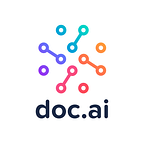First-Ever doc.ai Conference Reveals Next Steps in Redistribution of Power in Healthcare
There’s a lot of talk about transformation in healthcare. As Dr. Eric Topol said at this week’s doc.ai Conference last Monday, the confluence of big data, computing power, the cloud and open source have led to a new frontier in what is possible in medicine. There is no doubt among experts that we’re on the precipice of transformation in health.
But one thing stood out among all else at the first-ever doc.ai Conference on Monday: precision medicine, artificial intelligence and blockchain are combining to create the perfect storm, one in which the individual will finally gain control of their own health data and healthcare, and doctors and researchers will have better data available to properly diagnose and treat patients based on relevant and timely evidence.
The doc.ai Conference was a rare opportunity to hear from experts from all of these disciplines in one place. The result was a meeting of the minds on what it will take to truly put the power of healthcare in the hands of patients and to revolutionize the way we diagnose and treat patients.
The event opened up with our co-founder and CEO Walter De Brouwer sharing his vision for a new day in individualized healthcare. Walter emphasized how today we are giving so much of our health data to third parties. It’s generated from blood tests, DNA tests, and so much more. But this data lives in silos and is often times controlled or owned by hospitals, insurance companies or providers. By bringing all of this data together — the data that is hiding in your blood and in your cells with so many answers to be discovered — you can be in control of your health and essentially your life.
Dr. Bob Fisher, director and professor at Stanford University’s Epilepsy Center, and a panel of experts on misdiagnosed diseases shared how doc.ai is poised to help better diagnose and treat diseases through patient data trials, a fairly new concept that Dr. Fisher believes could drastically improve treatment of epilepsy. When consumers share their health data and data scientists can aggregate and identify trends among patients, it will unlock information never before seen or understood. Patients will be empowered to take these results to their doctors, partnering with them to impact their own lives. Imagine a world where medicine and treatment were based on evidence and not informed guessing by hurried physicians.
All of this possibility is being powered by the blockchain. Both the co-founder of Ethereum Anthony Di Iorio and co-founder of Storj Labs John Quinn shared that while largely misunderstood, the blockchain is expected to revolutionize the way we live on the same order of magnitude as the Internet. Anthony explained that the Internet changed the way we exchange and define information, while the blockchain and cryptocurrency will change the way we exchange and define value.
Blockchain enables doc.ai to decentralize the data it stores across multiple servers, breaking it up in shards so no one data set is accessible to anyone except the individual who owns the data when they call it up on their device. Blockchain also allows individuals to profit from sharing their data for scientific research, if they so choose. And lastly, the blockchain puts the trust in the technology and not in a third-party such as a bank, government or hospital.
It’s quite simply your data. And that fact will drastically transform healthcare and redistribute power to the individual.
doc.ai’s app will launch in Spring 2018, in the meantime, take the inclusive.doc.ai tool for a spin and see how close it comes to understanding your key, physical characteristics just by looking at your selfie. You will quickly see how this is the entry point to a whole new experience in healthcare. You can check out the demo that was performed live on stage at the event right here:
Change is coming. First, we must collect. Join us.
